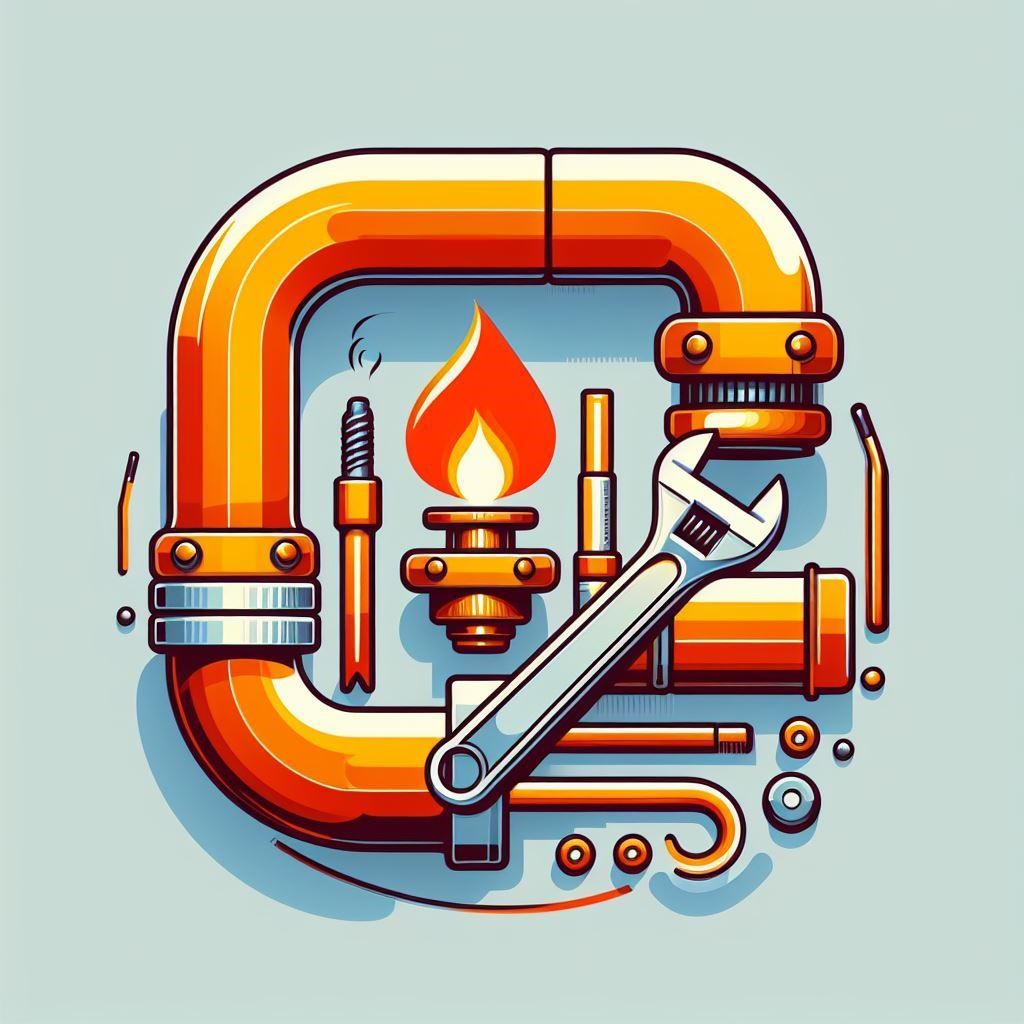A gas leak can be a very dangerous situation, posing serious risks of fire, explosion, and even carbon monoxide poisoning. Whether you suspect a small leak or a major gas line rupture, it’s critical to act quickly and follow the proper safety protocols. Attempting to fix a gas leak on your own can be extremely hazardous, so it’s best to leave the repair work to trained professionals.
If you ever detect the unmistakable rotten egg smell of natural gas or hear a hissing sound coming from a gas line, take the following immediate actions:
Table of Contents
Toggle1. Evacuate the Area
The first and most important step is to get yourself and everyone else out of the building or area where the gas leak is occurring. Do not flip any light switches, use electronic devices, or do anything that could potentially create a spark. Sparks can easily ignite leaking gas and lead to an explosion. Quickly open all doors and windows to ventilate the space.
Once you and your family are safely outside, call 911 immediately to report the gas leak. The emergency dispatcher will likely instruct you to contact your local gas utility company as well, so they can send a technician to assess and address the situation.
2. Shut Off the Gas Supply
If you can safely access the gas shut-off valve, turn it clockwise to the closed position. This will cut off the flow of gas and help prevent the leak from worsening. The gas shut-off is typically located near the gas meter, often outside the home. Be sure not to risk your safety by trying to shut off the gas if there’s a chance you could be overcome by fumes.
If the leak is coming from a specific appliance like a stove or furnace, you may be able to shut off the gas supply to just that unit by locating the individual shut-off valve. This can help contain the leak until the professionals arrive.
3. Ventilate the Area
Open as many windows and doors as possible to allow the leaking gas to dissipate. Avoid using fans or anything that could circulate the gas. You want to create as much airflow as you can to dilute the gas concentration and remove it from the building.
4. Evacuate Any Pets
Don’t forget about your furry family members. Cats, dogs, and other pets should be removed from the area as well, as they are just as vulnerable to the dangers of a gas leak. Leaving pets behind could result in serious harm or even loss of life.
5. Call for Professional Assistance
Once you’ve taken these immediate safety steps, the next critical action is to contact your local gas company or emergency services for assistance. Do not attempt to locate or repair the gas leak yourself, as this can be extremely dangerous. Trained technicians have the proper equipment, expertise, and safety protocols to handle a gas leak properly.
The utility company will dispatch a specialist who can use specialized gas detectors to pinpoint the source and severity of the leak. They may need to shut off the gas at the main line to stop the flow entirely. From there, they’ll determine the best course of action for safely repairing the leak.
Repairing the Gas Leak
Depending on the cause and location of the leak, the repair process may involve:
Replacing Damaged Pipes or Fittings
If the leak is coming from a cracked or damaged gas pipe, the technician will need to replace the affected section. This may require digging to access the underground line or removing drywall to get to pipes running through the home.
Tightening or Replacing Loose Connections
Leaks can also occur at the connection points between gas pipes, valves, and appliances. The technician may be able to simply tighten these fittings to stop the leak. In some cases, a gasket or connection component may need to be replaced.
Addressing Leaking Gas Appliances
If the leak is traced back to a specific gas appliance like a stove, furnace, or water heater, the solution could be as simple as tightening the gas line connection to that unit. However, if the appliance itself is faulty, it may need to be repaired or replaced.
Testing for Proper Function
Once the leak has been addressed, the technician will thoroughly test the gas lines and appliances to ensure the repair was successful and there are no remaining issues. This may involve using gas detection equipment and performing operational checks.
If the repair involves cutting off the gas supply, the technician will need to re-light any pilot lights and verify the safe functioning of all gas-powered devices before restoring full service.
Preventing Future Gas Leaks
After the immediate gas leak has been resolved, it’s important to take steps to prevent future occurrences. Regular maintenance and vigilance are key to gas safety in the home.
Regularly Inspect Gas Lines and Appliances
Routinely check gas lines, connections, and gas-powered appliances for any signs of wear, damage, or loose fittings. Look for cracks, corrosion, or areas where the line may be rubbing against another surface. Pay close attention to flexible gas lines, which are more prone to wear over time.
If you notice any issues, it’s best to contact a professional plumber or HVAC technician right away to have the problem addressed before it leads to a dangerous gas leak.
Schedule Professional Maintenance
In addition to your periodic inspections, it’s recommended to have your home’s gas lines and appliances professionally serviced on regularly typically once a year. A qualified technician can perform a comprehensive evaluation, identify any potential issues, and make any necessary adjustments or repairs.
Many utility companies offer free or discounted gas line and appliance safety checks, so be sure to take advantage of these services if available in your area.
Know the Location of Shut-Off Valves
Familiarize yourself with the location of the main gas shut-off valve for your home, as well as any individual shut-off valves for specific appliances. Being able to quickly turn off the gas supply can make a big difference in the event of a leak.
Consider Installing Gas Detectors
For added peace of mind, you can install gas detectors in your home that will sound an alarm if they detect the presence of natural gas or propane. This can provide an early warning system to help you address a leak before it becomes an emergency.
By taking a proactive approach to gas line and appliance maintenance, you can significantly reduce the risk of dangerous leaks. However, if you ever suspect a gas leak, always err on the side of caution and contact the professionals right away.
When to Call for Professional Help
There are a few key scenarios where you should never attempt to fix a gas leak yourself and should always call in a certified technician:
- You can hear or see a gas line leaking
- You can smell the distinctive rotten egg odor of natural gas
- A gas appliance is malfunctioning and you suspect a leak
- You recently had gas line work done and now detect a leak
- The leak is coming from an underground or hard-to-access gas line
- You lack the proper tools, equipment, and training to safely address a gas leak
Attempting DIY gas leak repairs can be extremely hazardous and even life-threatening. The risks of sparks, explosions, and carbon monoxide poisoning are simply too high. It’s always better to err on the side of caution and leave gas leak repairs to the experts.
Utility companies and reputable plumbing or HVAC contractors have the specialized knowledge, safety protocols, and equipment to properly diagnose and fix gas leaks. Trying to handle a leak yourself, even a small one, could end up causing much more extensive and costly damage.
The bottom line is that gas leaks should never be taken lightly. Acting quickly, evacuating the area, and calling in professional help is the safest approach. With their expertise, gas leak issues can be resolved safely and effectively, protecting your home and loved ones.

